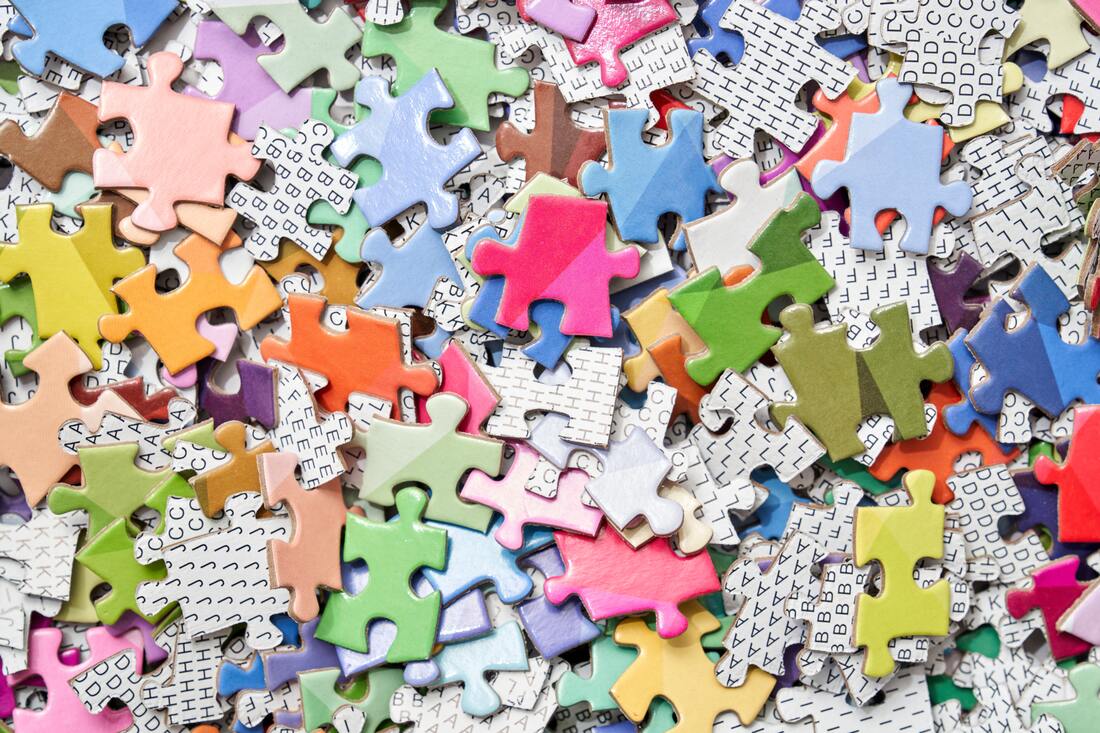From Awareness to Collaboration through Empathy (ACE Model)

As human beings, we already constantly practice awareness, empathy, and collaboration. We know stuff, we understand what (some) other people are feeling, and we work together on achieving common goals. So what's the big deal about the ACE model?
I argue that, to overcome the growing polarization, we need to not just "do" awareness and empathy, but to ace them. Only in this case we may be able to practice collaboration of the highest order, which would mean balancing between multiple perspectives and truths. Even though some people say that they have figured out the solution for the world's problems, I think that this solution is still a puzzle. If we want to make things better, we need to realize that all of us are its pieces.
Awareness: It is good to know stuff. But knowledge is inevitably colored by our biases and reflects the cultural milieu we live in. On top of that, instead of propelling us to do something, knowledge can be confusing, scary, depressing, and paralyzing. Awareness can make us want to curl up in a corner or fill us with crushing certainty that will cause more damage than good. The solution would be to find a balance between the crushing certainty and paralyzing doubt. We can achieve this goal by practicing intellectual humility: acknowledging that we are always learning and that our individual perspective will never be complete unless we take other perspectives into consideration.
Empathy: It is easy to practice empathy towards people who appear to be like us. Acing empathy would mean honestly trying to understand even those who view the world differently. This would involve seeing our opponents as potential allies, and not just “bad” or “stupid” people. We don't have to force ourselves into loving our enemies, as long as enemies they remain. Yet, we can aspire to learn from them, or at least about them. In this case, our goal should be not to triumph over our adversaries but to enrich our understanding of the problem we are trying to solve by infusing it with viewpoints different from our own. Ideally, this understanding can help us find common values and indicate ways to work across all sorts of divides.
Collaboration: "Collaboration does not have to be based on the unification of opinions. It’s about finding a new approach that none of the sides has envisioned. Prioritizing one truth over all others is an easy thing to do in the short run. Because it involves diminishing beliefs and values of our opponents, a conflict that is forced into hiding will eventually burst to the surface. In contrast, finding answers that lie beyond binaries may seem like an insurmountable task. By embarking on this quest we commit to putting considerable effort now in order to fashion a more sustainable balance for the future. This prospect is daunting and the path in front of us is far from clear. Still, I believe that there is hope. Once we stop searching for easy solutions, we may find ourselves in front of endless possibilities." [quote from the book, p. 133]
I argue that, to overcome the growing polarization, we need to not just "do" awareness and empathy, but to ace them. Only in this case we may be able to practice collaboration of the highest order, which would mean balancing between multiple perspectives and truths. Even though some people say that they have figured out the solution for the world's problems, I think that this solution is still a puzzle. If we want to make things better, we need to realize that all of us are its pieces.
Awareness: It is good to know stuff. But knowledge is inevitably colored by our biases and reflects the cultural milieu we live in. On top of that, instead of propelling us to do something, knowledge can be confusing, scary, depressing, and paralyzing. Awareness can make us want to curl up in a corner or fill us with crushing certainty that will cause more damage than good. The solution would be to find a balance between the crushing certainty and paralyzing doubt. We can achieve this goal by practicing intellectual humility: acknowledging that we are always learning and that our individual perspective will never be complete unless we take other perspectives into consideration.
Empathy: It is easy to practice empathy towards people who appear to be like us. Acing empathy would mean honestly trying to understand even those who view the world differently. This would involve seeing our opponents as potential allies, and not just “bad” or “stupid” people. We don't have to force ourselves into loving our enemies, as long as enemies they remain. Yet, we can aspire to learn from them, or at least about them. In this case, our goal should be not to triumph over our adversaries but to enrich our understanding of the problem we are trying to solve by infusing it with viewpoints different from our own. Ideally, this understanding can help us find common values and indicate ways to work across all sorts of divides.
Collaboration: "Collaboration does not have to be based on the unification of opinions. It’s about finding a new approach that none of the sides has envisioned. Prioritizing one truth over all others is an easy thing to do in the short run. Because it involves diminishing beliefs and values of our opponents, a conflict that is forced into hiding will eventually burst to the surface. In contrast, finding answers that lie beyond binaries may seem like an insurmountable task. By embarking on this quest we commit to putting considerable effort now in order to fashion a more sustainable balance for the future. This prospect is daunting and the path in front of us is far from clear. Still, I believe that there is hope. Once we stop searching for easy solutions, we may find ourselves in front of endless possibilities." [quote from the book, p. 133]